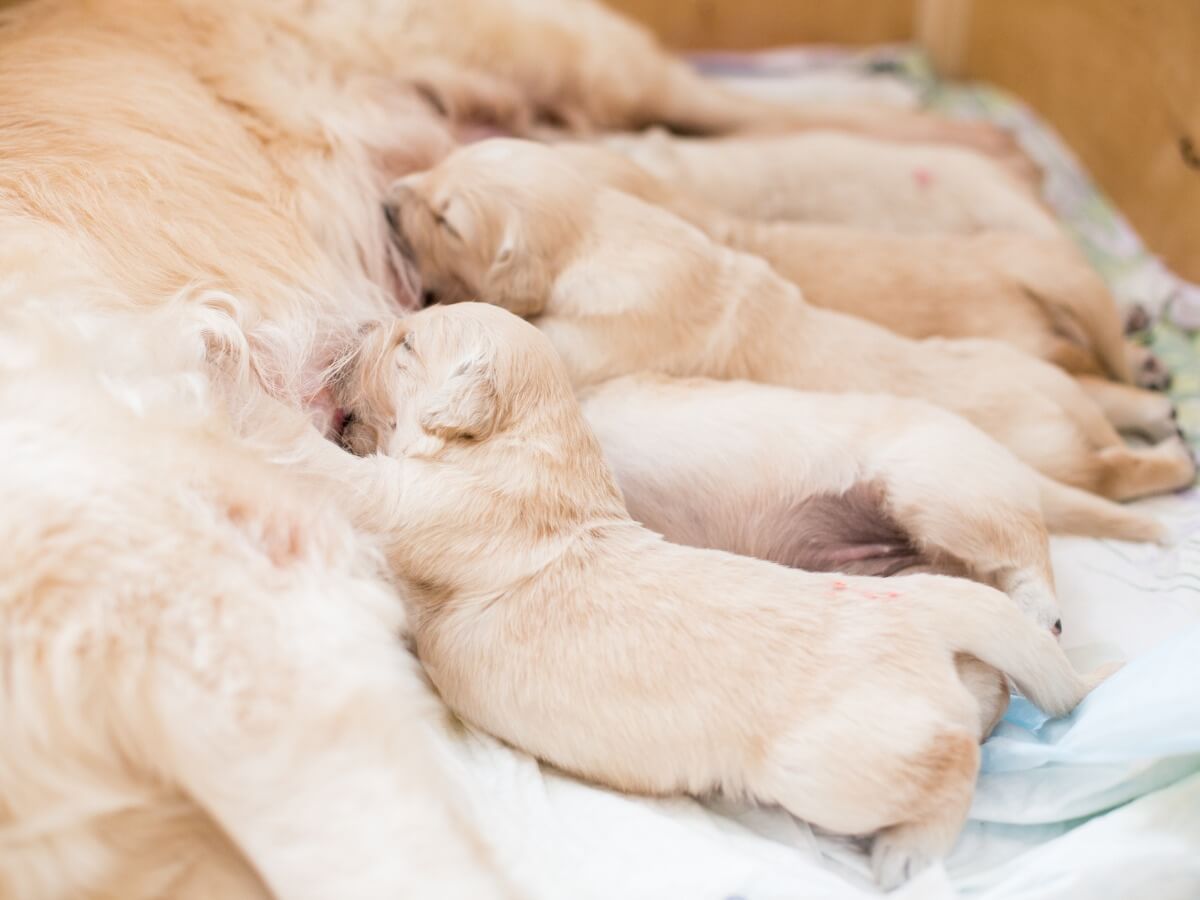5 Keys to Weaning Puppies
Puppies are at a delicate stage of life, and it's essential to know how to take care of them in all their stages of life. Weaning is a necessary transition in all dogs and, therefore, it's important to know how to do it.

Initial growth is a very important stage in all species, since all the physiological functions necessary to live properly are developed in this time. Dogs, in particular, are susceptible to developing musculoskeletal diseases and infections if they don’t experience proper growth. For this reason, knowing about weaning puppies is essential for their long-term well-being.
About 30% of puppies die between birth and weaning in the wild, due to the large number of harmful microorganisms they’re suddenly exposed to. This leads to improved canine immunity in the wild, but what a human least wants is that 3 out of 10 puppies in the litter die. Here we’ll bring you 5 keys so that weaning doesn’t end in disaster.
5 keys for weaning puppies
In the early stages of their life, puppies live with their mother and siblings without the need to eat solid food, depending entirely on their mother’s milk. During weaning, puppies need twice as much energy as adult dogs of the same breed, to boost their specific bone and muscle development, according to experts.
When puppies are weaned, it means that they go from relying on their mother’s milk to feeding on solid foods. Beyond the simple concept that it encompasses, this process requires prior knowledge in order to carry it out correctly. Next up… 5 keys to weaning puppies

1. Take care of mom!
It’s important to provide a good diet for the mother of the puppies at the end of the gestation — lasting 3 weeks — and during lactation. This is the only way to ensure good development in newborns and stability in the new mother.
During the journey from birth to weaning, the mother fulfills fundamental tasks to ensure that the puppies grow up healthy. Her great work needs to be handled with care.
Puppies are born with very little natural immunity and won’t fully develop it until around 16 weeks of age. Therefore, they depend solely on their mother, who provides them with immunity defenses through her milk.
Colostrum, a nutrient-rich milk that the mother produces during the first days after birth, contains immunoglobulins. These protect the puppies from possible diseases, while developing their own immune system.
However, this transfer of vital immunity from the mother is sometimes poor, so puppies may be at risk until their own immune defense is activated, experts say. This period in a puppy’s development is known as the immunity gap.
During this time, puppies may be more vulnerable to infection. This is the main reason why feeding well and taking care of mom are essential tasks for the health of all members of the dynamic.
2. Know the right time to wean puppies
In the first two weeks of life, puppies are prone to dehydration and depend on milk to live. Young dogs are always at risk of viral, bacterial, or parasitic infections, but good nutrition during pregnancy, lactation, and growth will help reduce these risks.
To avoid problems, puppies can be offered dry food – without neglecting their mother’s milk – from 2.5 weeks of age and not going beyond 4 weeks. At this time, milk won’t now comprise the total diet for all puppies. The definitive weaning will arrive at 6 or 8 weeks of life.
3. Know what type of proportional foods
A dog’s first food must be very light and contain an intermediate composition between milk and the growth diet. Any food offered must be formulated specifically for puppies, as their nutritional health – as in adult dogs – depends on receiving the correct amounts and proportions of 5 essential nutrients:
- Water
- Protein
- Fats
- Carbohydrates
- Minerals
To be considered to be a complete food, puppy food must contain all essential nutrients, except water – which must always be accessible. These nutrients also have to be present in the right proportion to ensure that the food is balanced.
Although fat, protein, and calcium tend to have a greater emphasis in puppy food, each essential nutrient is key. Deficiencies in any of these nutrients can compromise the short or long-term health of the entire brood.
4. Know how to feed them
In total weaning, the consumption of solid food must be high enough to provide them with the necessary energy and nutrients. This stage is very delicate and a sudden change in diet should be avoided and food intake regulated during the first 3 days to avoid digestive damage.
Solid food should be mixed with warm water and soaked for several minutes, until it has a texture similar to porridge. It’s also important that you take into account the following points:
- Offer the puppies food in small amounts at first and allow them to lick up the porridge.
- Remove any uneaten food after about 10 minutes.
- Feed them small meals regularly and increase the amount as they grow, following the feeding guidelines you can find on the food packaging.
Puppies will soon get used to the new flavors and textures. Then they can gradually stop eating more liquidy food, and, eventually, only eat dry food. Once the puppies are one month old, it’s important to have water available to them at all times.
5. Make a transition to change your food
When puppies go and live in their new homes, it’s a troublesome time for them, because their environment changes dramatically. The puppy will have a new point of reference (humans), a home full of stimuli, and a different diet.
Ideally, their diet should go through a transition period, where you change from the food they used to eat to the new one. This is because, in addition to stress due to a change of environment, an alteration in the intestinal flora can occur. This would give the dog diarrhea and increase the risk of viral or bacterial infections.

Over time, you will notice significant changes in the puppies. If they have a correct weaning stage, you’ll see that they’ll grow quickly, they’ll play with each other, they’ll develop properly, and they’ll improve their posture and movements.

